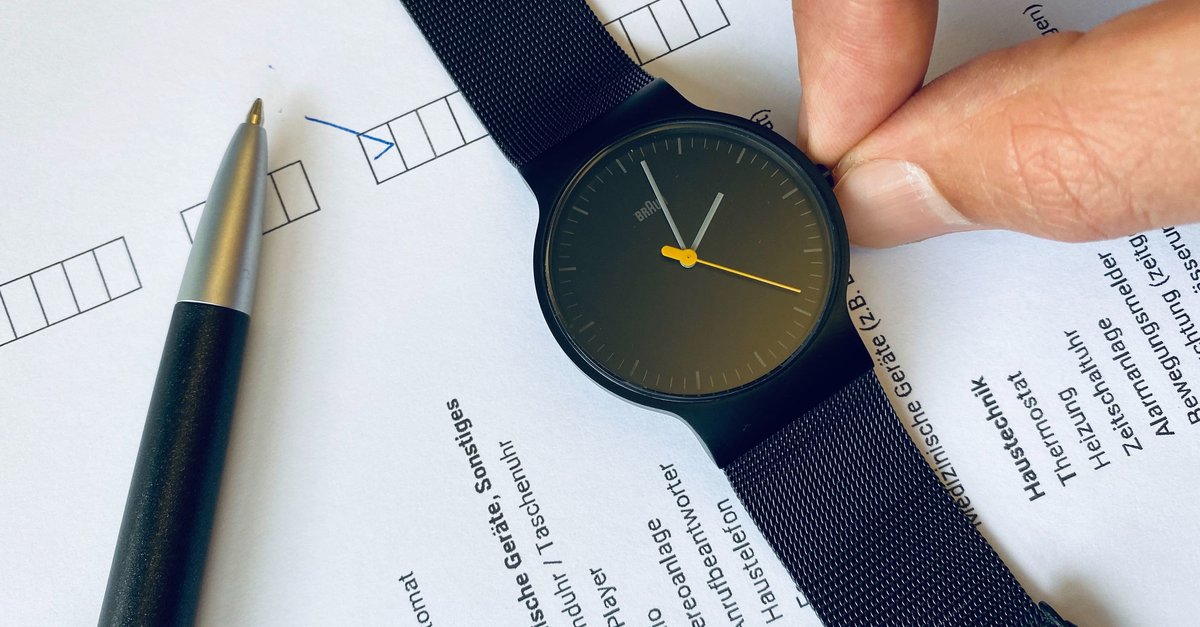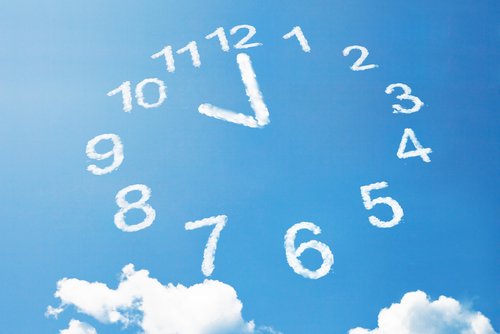These clocks and devices must be provided soon (list)
The time change, the beginning of “summer time” 2021, is coming soon. Do you set the clock forwards or backwards? Is it allowed to sleep longer or is the night getting shorter? Which devices do I have to change the clocks on and how do I do it on the mobile phone? Here is a quick answer to those questions.
On the night of March 27th to March 28th finds the first of the two clock changes will take place in 2021. As every year, “summer time” will be heralded on the last Sunday in March at 2:00 am (CET) in 2021. The clock is then put forward. That means there is on Sunday night an hour less sleep. This hour will (presumably) then be “returned” on Sunday, October 31, 2021, when the clock is then switched back to “winter time” (standard time).
Contents
- 1 Time change – end of summer time: Date 2021
- 2 Time change: List of all clocks and devices that need to be set
- 3 Time change on the mobile phone and on the computer
- 4 Polls: That’s what Germans think about the time change
- 5 What do you think of the time change?
- 6 Time change: what’s that good for?
- 7 EU: Time change should (actually) be abolished
- 8 when are the clocks adjusted? Sayings to remember – forward or backward?
Time change – end of summer time: Date 2021
- The time change from summer to Summer time 2021 takes place in the night from Saturday, March 27th to Sunday, March 28th, 2021.
- Then the clock of 2 o’clock advanced to 3 o’clock.
- When changing from “winter time” to “summer time”, the night becomes one hour shortened.
This graphic explains it very simply: When switching to daylight saving time, the clock is advanced (yellow), on October 31, 2021 it will be set back again (blue):
Time change: List of all clocks and devices that need to be set
Here is an overview of clocks or technical devices with an integrated clock that may have to be changed manually when changing the time. You can either open this article on your mobile phone and work through all the points or this checklist as a Download PDF file here and print it out.
living room
- TV
- Receiver
- Blu-ray / DVD player
- Weather station
- Wall clock
kitchen
- oven
- microwave
- Coffee machine
- Wall clock
Electronic devices, miscellaneous
- Wrist watch / pocket watch
- MP3 player
- radio
- stereo system
- Answering machine
- home phone
- fax
- Alarm clock
- Digital camera
- camcorder
- Fitness tracker, heart rate monitor
- Medical devices (e.g. blood pressure monitor)
House technic
- thermostat
- heater
- Timer
- Alarm system
- motion detector
- Lighting (time-controlled systems)
- Garden irrigation (time-controlled systems)
mobility
- Car radio
- Motorcycle (clock)
- Navigation systems
- Bike computer
- Fitness tracker, heart rate monitor
Time change on the mobile phone and on the computer
Smartphone and PC users don’t have to worry about the time change: As a rule, the digital clocks from Android, iOS and Windows change automatically – provided you have chosen the right setting.
Polls: That’s what Germans think about the time change
According to our GIGA survey, around 80 percentthat the time change is rather pointless, unnecessary or even stressful for your health. Only 20% see advantages in the changeover. Many complain of restlessness and sleep problems, and are even irritable after the time change. At Statista, too, there is a similar picture of the (in) sense of the time change. What do you think about that?
The ZDF Politbarometer asked the following question in a survey: “If the time change is abolished, would you like daylight saving time all year round or winter time all year round?” The answers show that the majority of those questioned are in favor of the permanent maintenance of summer time – should the time change be abolished become.

Time change: what’s that good for?
The colloquial “winter time” is actually the “normal time”. In March the clock will be switched to Central European Summer Time in order to save energy costs. Nowadays the time change is criticized in many places as unnecessary. When the time change was introduced, the aim was to make better use of bright daylight in order to save energy costs and resources for generating artificial light. In addition, you can sleep better in the additional hour in the dark. The reasons for the time change were in particular the 1973 and 1979/1980 oil crises.
The time was first changed during the First World War on April 30, 1916 in the German Empire, Austria-Hungary and Great Britain. This should increase the time with usable daylight. However, after the end of the First World War, the first phase of the clock change was suspended. It was not until 1975 that most of the countries of the European Community followed suit and introduced daylight saving time. In 1977 the plans were implemented. Here, too, a better use of energy was in the foreground. Since 1996, the clock has been set uniformly in the EU. Germany is one of over 60 countries that set the clock forwards or backwards. However, the time change is often criticized and perceived as nonsensical. Many no longer see the time change as an opportunity to save energy and see the time change as a historical holdover.
EU: Time change should (actually) be abolished
After a 2018 EU-wide survey on time change was the abolition in the EU on the test bench. Indeed then the majority of the European Parliament voted to abolish the time change from 2021. However, it is uncertain whether the deadline will be met. The member states of the EU can decide for themselves whether they want to live permanently in summer or winter time in the event of the time change being abolished. According to the latest information, it was due to the “agreements between the member states”. Ultimately, the aim is to prevent a patchwork of different time zones from being created in Europe.
when are the clocks adjusted? Sayings to remember – forward or backward?
If you are faced with the question “When will the clock be changed?” Every six months, there are a few donkey bridges and memorabilia with which you can remember whether it goes an hour forward or backward:
- In summer the clock is advanced (both with “o”), in winter behind.
- In summer, cafés put tables “in front of” the door. In winter you put them “back” in the shop.
- In winter there are minus temperatures, so the clock is set back. In summer, when the temperature is above zero, the time is set.
- In summer you can take a step outside because it is warmer. In winter you take a step back into the home as it gets colder again.




